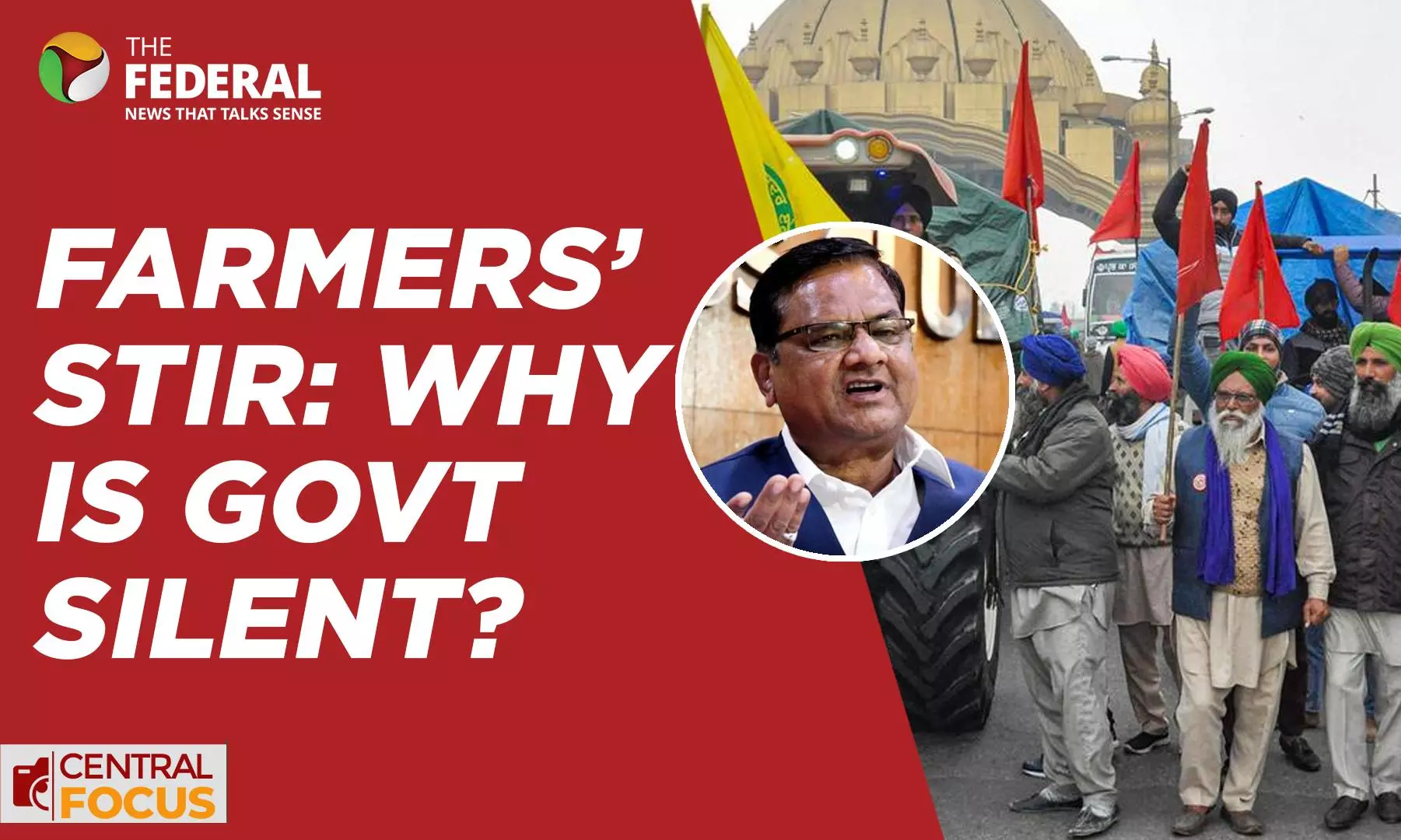
Anil Ghanwat, former member of the Supreme Court-appointed committee, on the farmers issue.
Dallewal hunger strike | Govt's inaction setting troubling precedent: Ex-SC panel member
Anil Ghanwat said the lack of communication by the govt could have far-reaching consequences for the democratic fabric of our nation

As the farmers’ protest in Punjab reaches its 50th day, Anil Ghanwat, former member of the Supreme Court-appointed committee, expressed deep concern over the impasse. Speaking to The Federal, Ghanwat highlighted the resilience of the farmers and their commitment to continue the agitation until their demands are addressed.
“The farmers are patiently waiting for government interaction. If their demands are not accepted, they are ready to stay for as long as it takes,” said Ghanwat. He raised an urgent alarm over the health of Sardar Jagjit Singh Dallewal who has been on a hunger strike for over 45 days.
Demand for MSP legal guarantee
The core demand of the protesting farmers remains the legal guarantee for Minimum Support Price (MSP) on all crops. While the government appears reluctant to meet this demand in full, Ghanwat suggested a compromise:
“The government could offer a legal guarantee for the 23 notified crops initially. This could be a trial to assess its impact on farmers and traders alike,” he said.
Also Read: Farmer attempts suicide at Shambhu border, dies at Patiala hospital
Ghanwat noted that such a law would address farmers’ concerns while giving the government room to evaluate its effectiveness over time.
“If the results are promising, further amendments can be made,” he said, urging the government to step in and prevent the situation from escalating further.
Govt’s reluctance to engage
When asked why the central government has not reached out to the farmers despite the ongoing protest, Ghanwat speculated that ego may play a significant role.
“The government might fear that giving in to the farmers’ demands will set a precedent for other groups to protest and extract concessions,” he said.
However, he stressed the urgency of resolving the crisis, especially given the deteriorating health of Sardar Dallewal.
“A life is at stake. The government must intervene immediately,” Ghanwat asserted.
Also Read: Farmers’ stir: DP Vats explores dynamics of MSP, khaps, govt policies
Role of Punjab govt
Ghanwat criticised the Punjab government for its perceived lack of support for the farmers. He recounted an incident where Dallewal was allegedly taken to Ludhiana against his will, leading to protests and his subsequent release.
“Farmer leaders feel that the Punjab government is hand-in-glove with the central and Haryana governments,” he said.
This perceived lack of cooperation has led to a growing distrust among farmers toward both state and central governments.
Also Read: Farmer leader Dallewal's BP fluctuating, condition has deteriorated: Doctors
Divisions among farmer unions
Another challenge the protest faces is the division among farmer unions. Many unions that were active during the 2020-21 agitation have distanced themselves from the current movement. According to Ghanwat, this is partly due to disagreements over the involvement of certain unions in politics.
“There’s a divide between unions that want to remain apolitical and those who have entered the political arena,” he explained.
However, he expressed optimism that these differences might soon be resolved as the situation grows increasingly dire.
Also Watch: Watch: What’s stopping Khap panchayats from backing farmers this time?
Khaps and broader support
Khaps, the traditional social organisations in Haryana, Punjab, and western Uttar Pradesh, have offered limited support to the current protest. Ghanwat believes their involvement may increase in the coming days as the agitation gains momentum.
“A recent Khap panchayat expressed support for the protest. While the scale isn’t what it was before, I believe their participation will grow,” he noted.
Practical steps for de-escalation
Ghanwat outlined practical steps for the government to de-escalate the situation, including addressing specific farmer demands such as compensation for those who lost their lives during the previous protests and action against the culprits of the Lakhimpur Kheri incident.
On MSP, he recommended a phased approach: “Introduce a law for the notified crops and observe its impact. If successful, consider expanding it to include broader demands like C2 plus 50 per cent calculations.”
Also Read: Farmers slam Diljit Dosanjh for meeting PM Modi, express doubt over his intentions
A warning for the future
Ghanwat concluded with a stark warning, “The way the government is treating this agitation sets a troubling precedent. Farmers across India, regardless of their specific demands, are watching closely. This lack of communication could have far-reaching consequences for the democratic fabric of our nation.”
As the protest continues, Ghanwat urged both the central and Punjab governments to engage in meaningful dialogue to resolve the crisis.
(The content above has been generated using a fine-tuned AI model. To ensure accuracy, quality, and editorial integrity, we employ a Human-In-The-Loop (HITL) process. While AI assists in creating the initial draft, our experienced editorial team carefully reviews, edits, and refines the content before publication. At The Federal, we combine the efficiency of AI with the expertise of human editors to deliver reliable and insightful journalism.)

